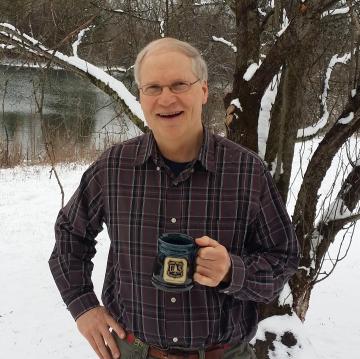Delaware resident named Fellow of the Ecological Society of America
OHIO — Louis Iverson, a longtime landscape ecologist with the Forest Service in Delaware, Ohio, was recently named a Fellow of the Ecological Society of America in recognition of his “…creative and insightful research in restoration ecology and in understanding potential impacts of climate change on forest species; for the practical implementation of this research for management of environmental problems; and for leadership in putting the field of landscape ecology on a firm footing.”
From the beginning of his career in Forest Service research in 1992, Iverson has focused on climate change and developing practical applications of his research. Along with over 250 research publications, one of his most significant accomplishments was a project with colleagues to develop the Climate Change Atlas, an online tool that allows natural resource managers to evaluate the impacts of climate change on 125 tree species and 147 bird species in the eastern United States. With more than 8 million page views, the atlas is the most frequently used tool on the Northern Research Station’s website.
“Louis Iverson is a wonderful scientist, as demonstrated by his work,” said Susan Stout, a Northern Research Station emeritus scientist who previously managed Iverson’s research unit. “Of course, there is the pioneering science that led to the Tree and Bird Atlas and the wonderful associated products. Louis and his team have also been wonderful partners to managers with very specific problems related to plants, their preferred habitat, and anticipated or observed climate changes.”
While he retired in 2020, Iverson continues to volunteer with the Northern Research Station. A native of North Dakota, Iverson attended the University of North Dakota for both his undergraduate and doctorate in biology/ecology. He joined the Northern Research Station in 1992; previously, he also worked in Illinois and York, England.

